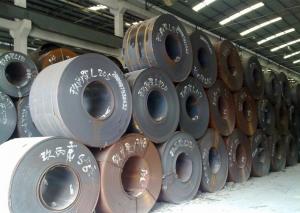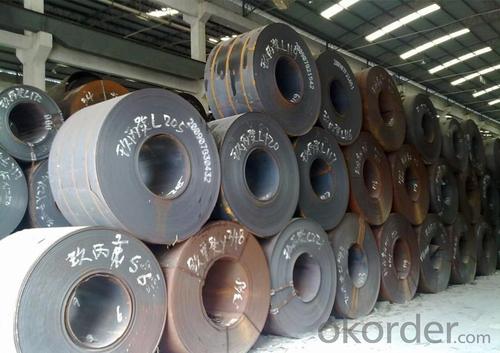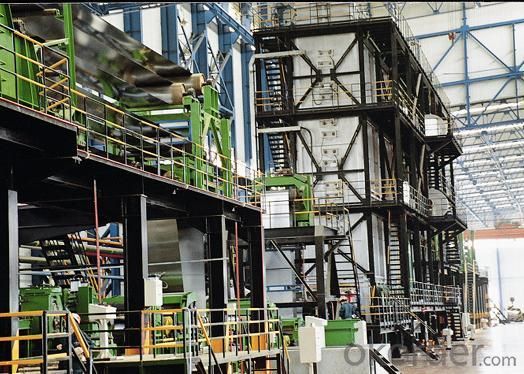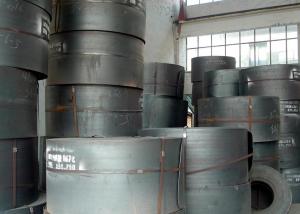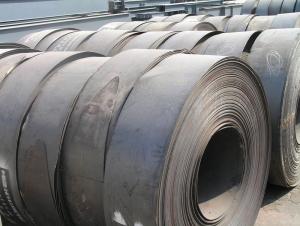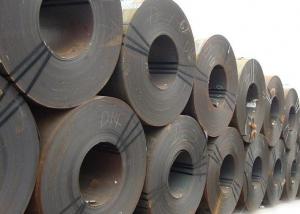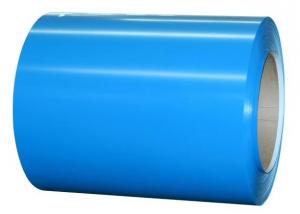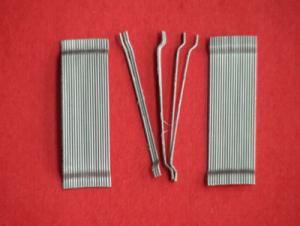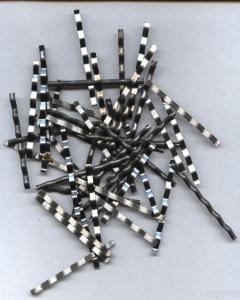Hot Sellers Of Hot Rolled Steel GB Standard, 60mm-100mm
- Loading Port:
- China Main Port
- Payment Terms:
- TT or L/C
- Min Order Qty:
- 50 tons m.t.
- Supply Capability:
- 50000 Metric Tons Per Month m.t./month
OKorder Service Pledge
OKorder Financial Service
You Might Also Like
Specification Of Hot Sellers of Hot Rolled Steel GB Standard, 60mm-100mm
|
|
Thickness |
Width |
Length |
Coil Inside Diameter |
|
HOT ROLLED STEEL COIL |
1.50~25.0mm |
600~2000mm |
|
762mm |
|
HOT ROLLED STEEL STRIP |
1.50~20.0mm |
30~720mm |
|
762mm |
|
HOT ROLLED STEEL PLATE |
6.00~700mm |
500~4500mm |
4000~18000mm |
|
|
HOT ROLLED STEEL SHEET |
1.20~25.0mm |
50~2000mm |
0~18000mm |
|
|
HOT ROLLED STEEL CHEQUERED |
1.40~10.0mm |
900~1500mm |
0~18000mm |
|
Standard &Grade Of Hot Sellers of Hot Rolled Steel GB Standard, 60mm-100mm
|
|
JIS |
ASTM |
SAE |
EN |
|
Commercial Quality |
G3131 SPHC |
A569 A635 A659 A1011 CS Type A, B, C |
1006~1025 |
10111 DD11 |
|
Drawing Quality |
G3131 SPHD |
|
1006~1010 |
10111 DD12 |
|
Deep Drawing Quality |
G3131 SPHE |
A622 A1011 DS Type A, B |
1006~1010 |
10111 DD13 DD14 |
|
General Structure (T.S.<490N/mm2) |
G3101 SS330 SS400 G3106 SM400A G3132 SPHT1 SPHT2 SPHT3 |
A36 A283 GR.C A570 GR.30~40 A1001 SS GR.30~40 |
1010~1025 |
|
|
General Structure (T.S.≥490N/mm2) |
G3101 SS490 G3106 SM490A SM490YA G3132 SPH4 |
A570 GR.45~50 A607 GR.45~70 A1011 SS GR.45,50 A1011 HSLAS GR.45~70 |
J1392 050X |
|
Definition Of Hot Sellers of Hot Rolled Steel GB Standard, 60mm-100mm
Rolled to its final dimensions while it’s hot enough to scale, our hot-rolled steel is an amalgamation of the various qualities of steel. It can be in the form of plates, sheets and coils. Our Hot-Rolled Steel Sheets and Coils are applied to a wide range of uses such as automobile, electrical appliance, machinery manufacturing, container manufacturing, shipbuilding, bridge, pipeline, and receive high acclaim from our customers for its excellent quality.
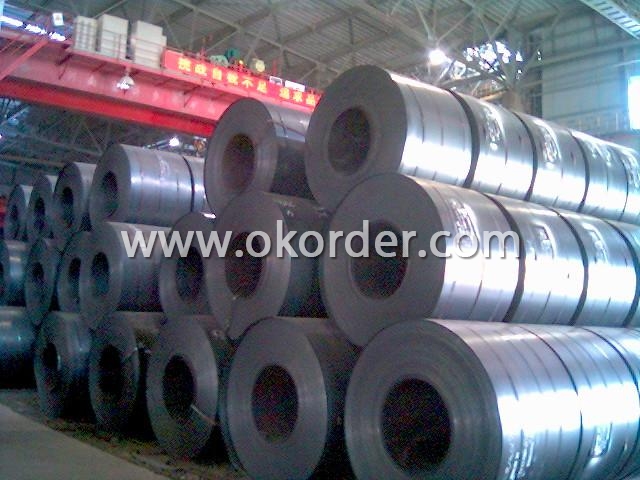
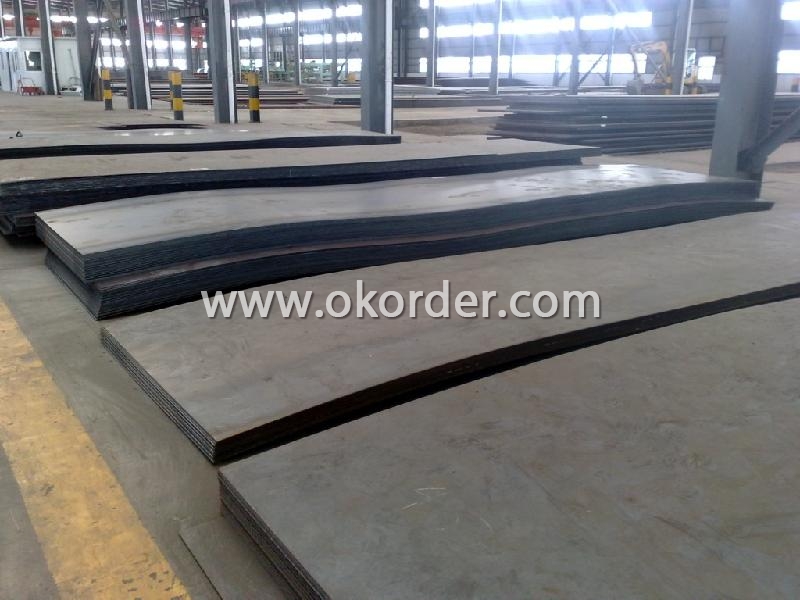
Usage/Application Of Hot Sellers of Hot Rolled Steel GB Standard, 60mm-100mm
As raw material for:
Container &Pipe Production
Carbon Structural Steel
Low Alloy Steel
High Quality Carbon Structural Steel
Atmospheric Corrosion Resistant Steel
Low Carbon Steel (Commercial Quality, Drawing Quality, Deep Drawing Quality)
Packaging & Delivery Of Hot Sellers of Hot Rolled Steel GB Standard, 60mm-100mm
The packing of coils consists of anti-damp paper, PVC film, hardboard paper, steel box, strapped with steel strips, fitted with locks and edge protectors and guarantees the optimal condition of the delivered goods. Each coil can be additionally fitted with wooden/steel skids(eye to the side) or wooden pallets(eye to the sky).
Bulk shipment packed with steel belt.
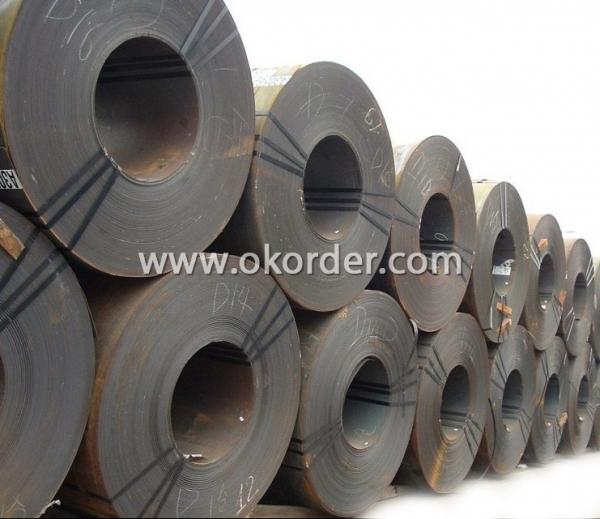
- Q: How are steel products used in the railway industry?
- Steel products are extensively used in the railway industry for various applications. Steel is commonly used for manufacturing railway tracks, train wheels, and various structural components of the railway infrastructure. Additionally, steel is used in the construction of railway cars, locomotives, and various equipment such as bridges, tunnels, and signaling systems. Its high strength, durability, and ability to withstand heavy loads make steel an ideal material for ensuring the safety and efficiency of the railway system.
- Q: What are the different types of steel products used in the manufacturing of pet accessories?
- The different types of steel products used in the manufacturing of pet accessories include stainless steel bowls, leashes and collars made from stainless steel chains, steel wire crates, and steel frames for pet beds and furniture.
- Q: What are the different types of steel wire ropes and their uses?
- There are several different types of steel wire ropes, including galvanized, stainless steel, and vinyl-coated ropes. Galvanized steel wire ropes are commonly used in outdoor applications as they have a protective zinc coating that helps prevent rust and corrosion. Stainless steel wire ropes are highly resistant to corrosion and are ideal for marine, industrial, and food processing applications. Vinyl-coated steel wire ropes are often used in gym equipment, playgrounds, and other applications where a smooth and protective covering is required to prevent damage. Each type of steel wire rope has its own specific uses and benefits depending on the intended application.
- Q: How is steel used in the construction of theme parks and recreational facilities?
- Steel is used in the construction of theme parks and recreational facilities for various purposes, such as the creation of structural supports, roller coasters, rides, and other attractions. It provides strength and durability, allowing for the construction of large and intricate structures, ensuring the safety and enjoyment of visitors. Additionally, steel is also used in the fabrication of fencing, gates, and other components, contributing to the overall aesthetics and functionality of these facilities.
- Q: What are the different types of steel bars used in construction?
- There are several types of steel bars commonly used in construction, including mild steel bars, deformed steel bars, high-strength deformed steel bars, and epoxy-coated steel bars. Each type has specific properties and uses, but they all provide strength and reinforcement to various structural elements in buildings and other construction projects.
- Q: How is steel rebar used in concrete construction?
- Steel rebar is used in concrete construction to provide reinforcement and strength to the concrete structures. It is typically placed within the concrete forms before pouring, creating a framework that helps to increase the structural integrity and durability of the concrete. The steel rebar acts as a tension device, absorbing and distributing the forces that act upon the concrete, such as those caused by weight, temperature changes, and natural disasters. This reinforcement helps to prevent cracking, increase load-bearing capacity, and enhance the overall performance and lifespan of the concrete construction.
- Q: How do steel products contribute to the construction of research laboratories and scientific facilities?
- Steel products play a crucial role in the construction of research laboratories and scientific facilities. They provide structural support and durability, ensuring the safety and integrity of the buildings. Steel beams, columns, and frames are commonly used to create large open spaces, allowing for flexible layouts and accommodating various equipment and machinery. Additionally, steel is resistant to fire, corrosion, and pests, making it an ideal choice for laboratories where hazardous materials and sensitive experiments are conducted. Overall, steel products are essential components in creating efficient, functional, and secure research facilities.
- Q: What are the different types of steel bolts and their uses in the automotive aftermarket?
- There are several types of steel bolts commonly used in the automotive aftermarket, including hex bolts, flange bolts, carriage bolts, and specialty bolts like wheel bolts and exhaust manifold bolts. Hex bolts are the most commonly used and are suitable for a wide range of applications. Flange bolts have a built-in washer-like flange that distributes the load and provides extra strength. Carriage bolts have a smooth, rounded head and are often used in applications where a smooth finish is desired. Specialty bolts like wheel bolts are specifically designed for securing wheels to the vehicle, while exhaust manifold bolts are used to connect the exhaust manifold to the engine block. Each type of steel bolt has its own specific use and is selected based on the requirements of the automotive aftermarket applications.
- Q: What are the different types of steel sheet and their uses?
- There are several types of steel sheets, including hot rolled, cold rolled, galvanized, and stainless steel sheets. Hot rolled sheets are commonly used in construction, fabrication, and general manufacturing due to their strength and malleability. Cold rolled sheets are often used for applications requiring precise dimensions and a smooth surface finish, such as automotive body panels or appliances. Galvanized sheets have a protective zinc coating and are widely used in outdoor applications to prevent corrosion, such as roofing or fencing. Stainless steel sheets, known for their resistance to corrosion and high strength, are commonly used in industries like food processing, medical equipment, and architectural design.
- Q: What are the common uses of steel pipes and tubes?
- Steel pipes and tubes have a wide range of common uses in various industries. Some of the common applications include transportation of fluids and gases in plumbing systems, infrastructure projects such as water supply and sewage systems, oil and gas pipelines, construction and structural purposes, manufacturing of machinery and equipment, and even in the automotive industry for exhaust systems.
1. Manufacturer Overview
| Location | Hebei, China |
| Year Established | 2002 |
| Annual Output Value | |
| Main Markets | North America Eastern Asia Africa Eastern Europe Southeast Asia Western Europe |
| Company Certifications | ISO 9001;ISO 14001 |
2. Manufacturer Certificates
| a) Certification Name | |
| Range | |
| Reference | |
| Validity Period |
3. Manufacturer Capability
| a) Trade Capacity | |
| Nearest Port | Tianjin; Qingdao |
| Export Percentage | 50% |
| No.of Employees in Trade Department | 50 People |
| Language Spoken: | English; Chinese |
| b) Factory Information | |
| Factory Size: | 30000 square meters |
| No. of Production Lines | Above 10 |
| Contract Manufacturing | OEM Service Offered |
| Product Price Range | Average |
Send your message to us
Hot Sellers Of Hot Rolled Steel GB Standard, 60mm-100mm
- Loading Port:
- China Main Port
- Payment Terms:
- TT or L/C
- Min Order Qty:
- 50 tons m.t.
- Supply Capability:
- 50000 Metric Tons Per Month m.t./month
OKorder Service Pledge
OKorder Financial Service
Similar products
Hot products
Hot Searches
Related keywords
